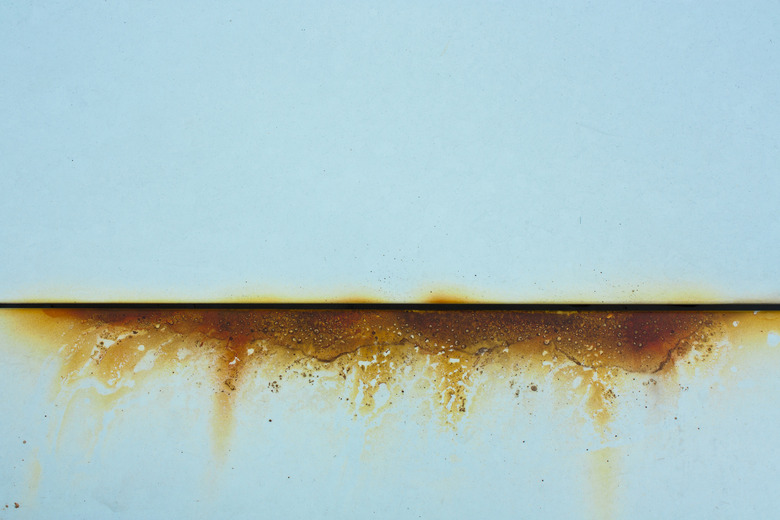Saltwater and metal do not mix, as it causes metal to corrode. Certain objects made of metal — like boat engines — spend a lot of time submerged in saltwater and they can corrode quickly. Simple maintenance keeps corrosion at bay.
TL;DR (Too Long; Didn’t Read)
To protect metals submerged in saltwater from corroding, remove the metal from the saltwater, thoroughly clean and rinse with fresh water. Once the metal is dry, use a marine paint or oil sealant to cover the metal completely. To prevent electrochemical corrosion, consider a galvanized zinc coating or sacrificial cathodes.
Saltwater
and Metal
The combination of moisture, oxygen and salt, especially sodium chloride, damages metal worse than rust does. This combination corrodes, or eats away at, the metal, weakening it and causing it to fall apart. Saltwater corrodes metal five times faster than fresh water does and the salty, humid ocean air causes metal to corrode 10 times faster than air with normal humidity. Bacteria in ocean water also consumes iron and their excretions turn to rust.
Electrochemical Corrosion
One form of corrosion that occurs when metal and saltwater get together is called electrochemical corrosion. Metal ions dissolve in water and saltwater conducts electricity and contains ions, which attract ions from other compounds. During electrochemical corrosion, electrons from other compounds are attracted to the metallic ions. Saltwater attacks the metal and corrosion occurs.
Anaerobic Corrosion
As the second type of corrosion that occurs when metal is exposed to saltwater for an extended period, anaerobic corrosion leaves deposits that contain sulfates and surround the metal as it sits in saltwater; Hydrogen sulfide is produced which then corrodes metals. At the same time, bacteria grow in the saltwater which used the hydrogen to corrode the metal as well. Between the ions, sulfates and bacteria, metal is attacked from all angles when it is in saltwater.
Preventing Corrosion
To prevent the corrosion of metal in saltwater, rinse the metal completely in fresh water after removal from saltwater. Dry the metal thoroughly, especially in crevices and pockets where saltwater lingers. To store metal that regularly sits in saltwater, keep the metal submerged completely in oil, antifreeze or kerosene. These measures can keep boat hulls, engines and other seafaring metals from corroding.

